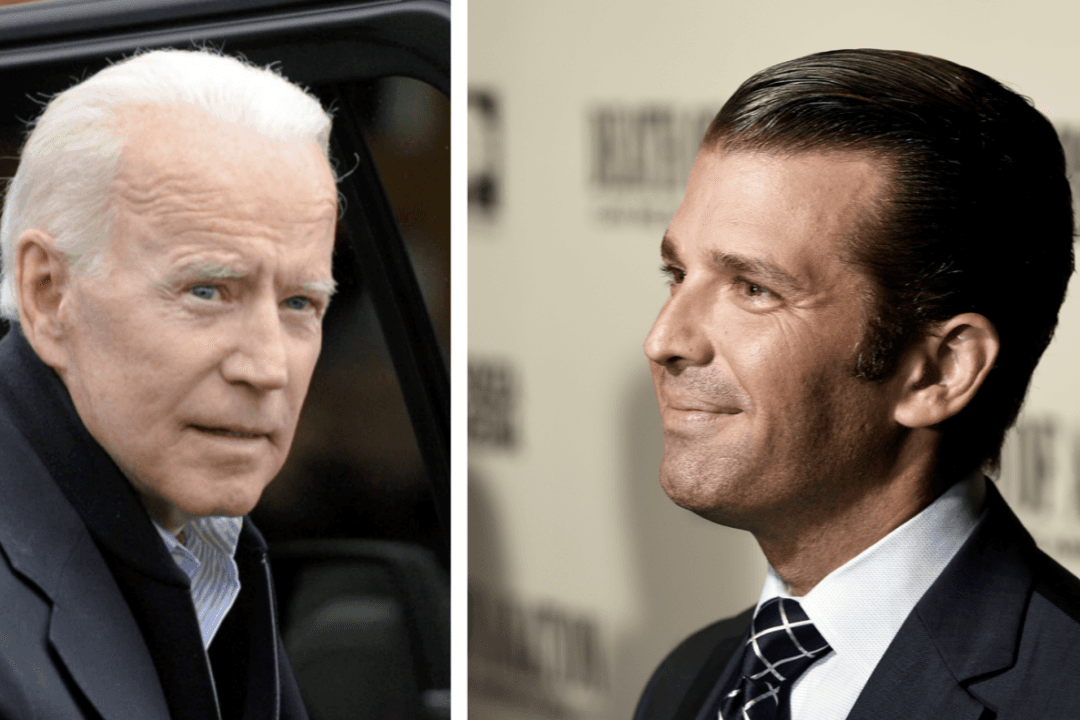Donald Trump Jr. called out former U.S. Vice President Joe Biden, saying that the 2020 presidential candidate is “incentivized” to pretend that the Chinese communist regime poses no threat to the United States, by noting that Biden’s son reportedly obtained $1.5 billion from the Chinese regime.
Trump Jr.’s June 5 remarks on Twitter were in response to Biden’s comments at a campaign in New Hampshire on June 4.




